World Jellyfish Day 2023: What do you know about jellyfish?
- Published
- comments
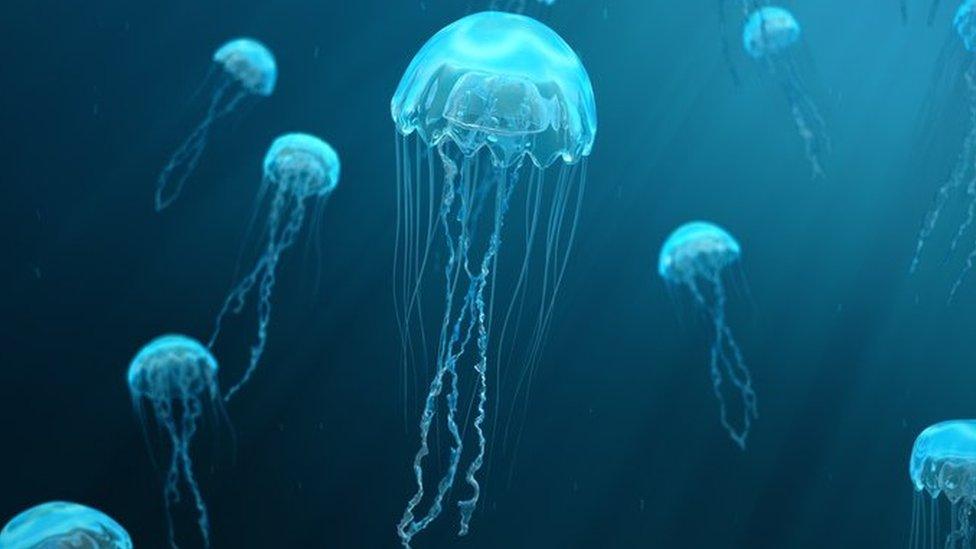
Jellyfish live all over the world and come in all different shapes and sizes
World Jellyfish Day is on 3 November.
It's a special day to celebrate the mysterious creatures and think of ways to keep them safe all over the world.
These strange animals are made up of mostly water, have no centralised brains, blood or bones.
Conservationists are hoping to raise awareness of this unique creature for the role they play in the environment and their potential to help medical research or even be a sustainable food source.
And while you may think of the unusual sea creatures as mainly being far away from home, sightings of jellyfish in UK seas and on our beaches have gone up by 32% according to research done by the Marine Conservation Society.
Read on to find out some fun facts about jellyfish
If you cannot see the quiz, click here.
When did jellyfish appear?
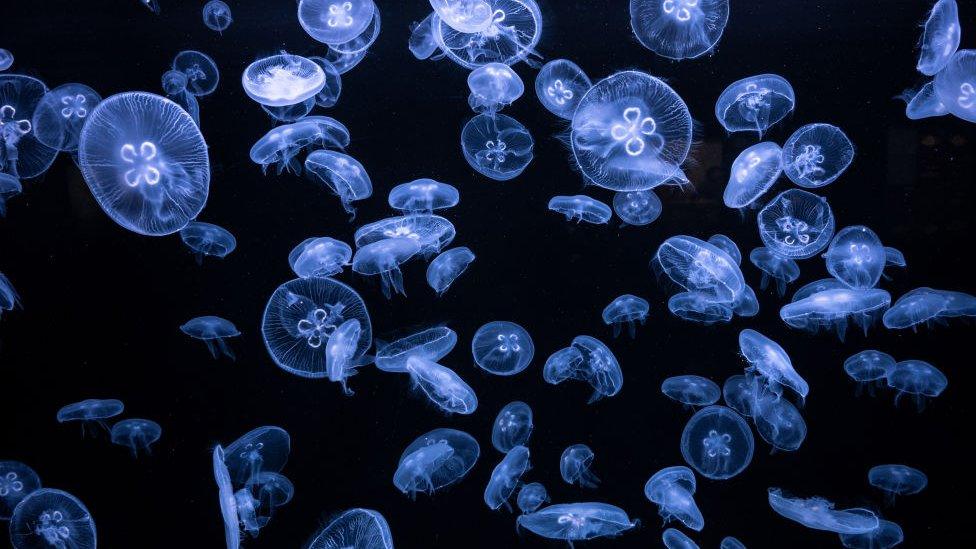
These are Many Moons jellyfish - can you see how they got their name?
Did you know jellyfish were around before dinosaurs?
They've been around for more than 500 million years - scientists discovered this in 2005 when they found a 505-million-year-old jellyfish fossil.
Jellyfish famously have no bones - so the fossil certainly shocked scientists at the time.
In 1991, Nasa sent more than 2,000 jellyfish into space.
They reproduced and by the end of the experiment there were almost 60,000 jellyfish.
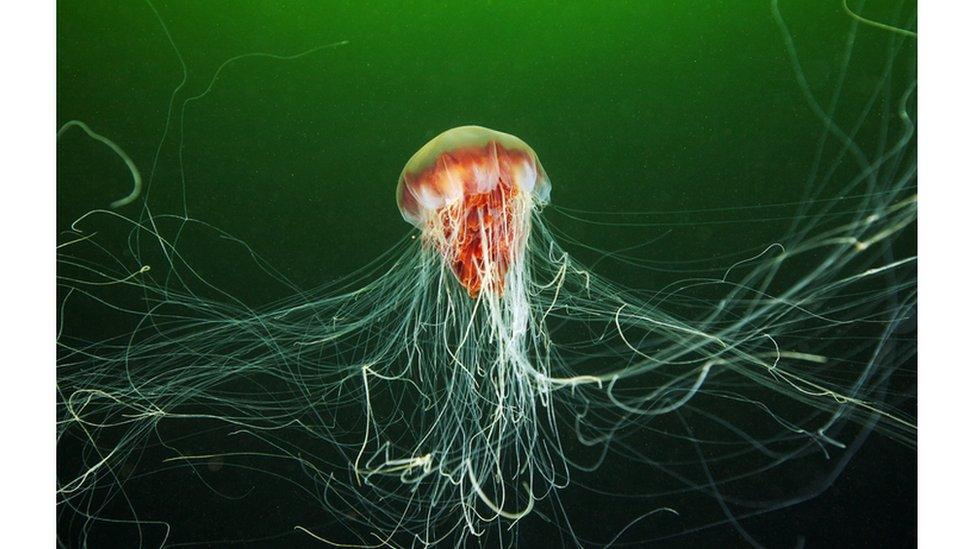
This is the Lion's Mane jellyfish, which has huge string-like tentacles
Charles Darwin, jellyfish superfan
It's thanks to Charles Darwin that jellyfish were investigated by scientists because of his theory of natural selection.
Another scientist, who read Darwin's work, studied the evolution of jellyfish and how they came to be the peculiar creatures they are.
He found that millions of years ago, when organisms were developing in the ocean, jellyfish split from other sea creature groups.
Some jellyfish have extremely long stingers - such as the Lion's Mane jellyfish - which has tentacles that can grow up to 36 metres long.
There are jellyfish that can glow in the dark. Scientists think that this is to attract prey or warn others away.
The Australian box jellyfish is thought to be the most venomous marine animal because of it's poisonous stingers.
Are jellyfish fish?
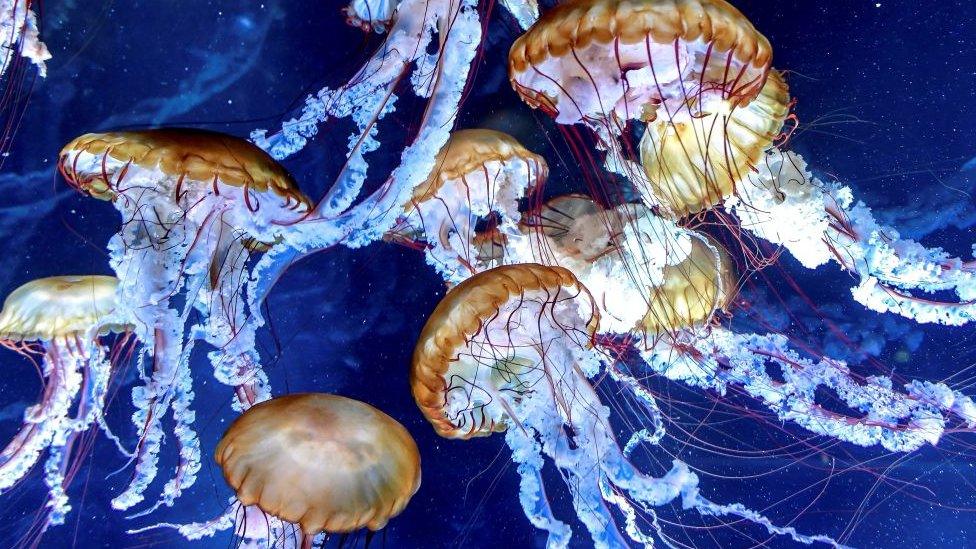
Where have you seen jellyfish? Let us know in the comments below
Jellyfish are invertebrates, which means they don't have a backbone.
Fish are centred around their backbones - so technically jellyfish aren't really fish, despite having "fish" in their name.
They are made up of 95% of water, which is why they look so different when they're washed up on shore.
Jellyfish might not have a centralised brain, blood or even a heart, but they do have a simple nervous system, which means they can feel vibrations in the water.
Ever seen a dolphin juggle jellyfish?Check it out here!
Do all jellyfish sting?
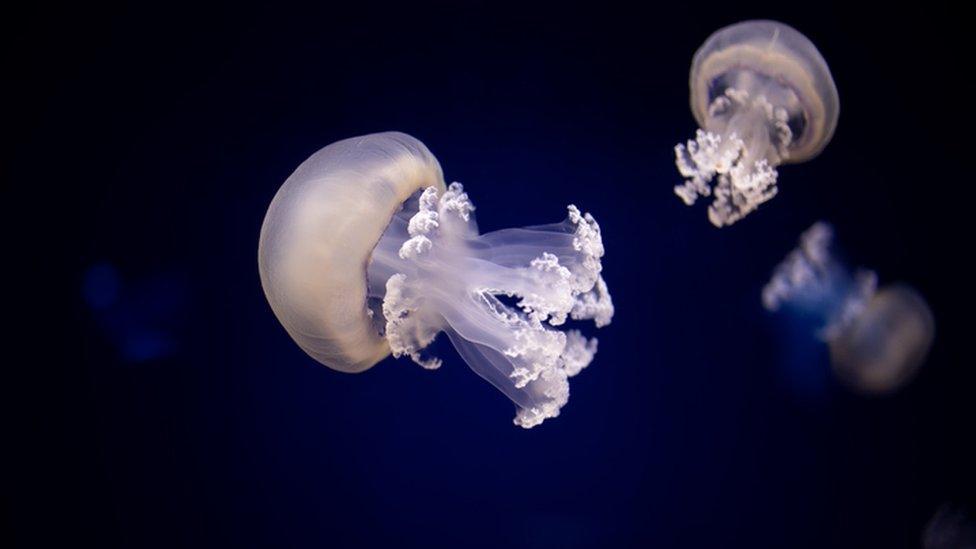
Check out these Barrell jellyfish
All jellyfish have stings, but not all of them have stingers that can hurt people.
Most stings from sea creatures in waters around the UK are not serious and can be treated with first aid.
The NHS recommends you ask an adult, like a lifeguard, for help as soon as possible if you receive a painful sting.
Some jellyfish stings can be very painful, but these are quite rare. For example the world's smallest jellyfish, the Irukandji jellyfish, is thought to be one of the most venomous jellyfish in the world - despite its size.
Jellyfish in the UK
The Marine Conservation Society conducted a survey that found jellyfish sightings in the UK have gone up by 32% in 2023.
The most commonly spotted were the huge barrel jellyfish - but rarer warm-water crystal jellyfish were also seen.
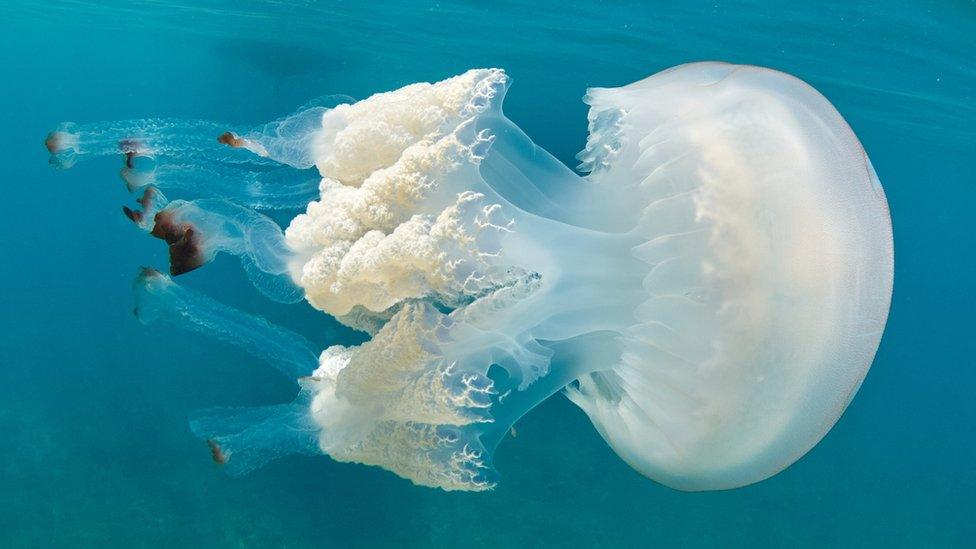
Barrel jellyfish were the most commonly-spotted jellyfish in the UK in the last year
They were mainly found on the UK's west coast, such as in Cornwall and Wales.
Jellyfish populations vary naturally over time, but scientists say rising sea temperatures as a result of climate change is having an impact.
In August, oceans hit their highest ever average temperature.
- Published1 November 2022

- Published2 November 2022

- Published31 October 2022

